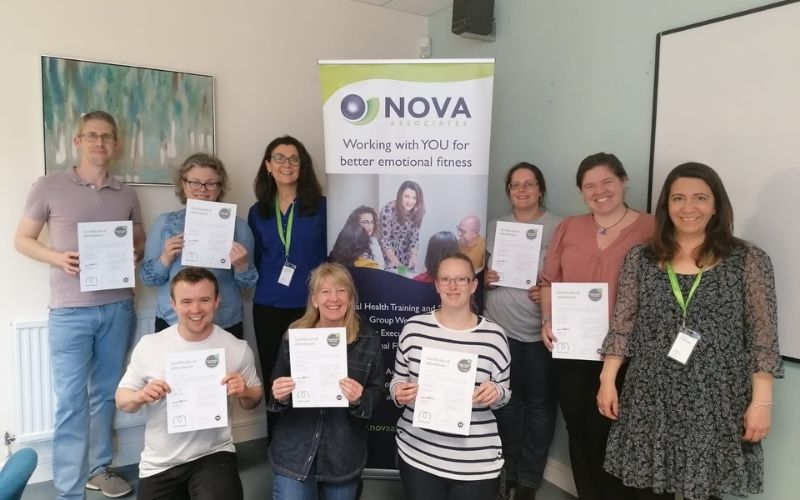Please note that within this blog I talk about poor mental health and suicide which may be triggers for some people.
During the month of May, I enrolled on an intensive course to become a mental health first aider, a voluntary role to help support my colleagues’ wellbeing as well as widen my awareness of managing mental health in the workplace. I invested in the training because I felt it was important to be professionally trained about how to spot the signs of poor mental health, and to know what you should do to support others.
Ensuring your mental health is balanced means that you are looking after yourself. Some days you may not be as happy or positive as others – this is natural. You may get annoyed. Have a cry. Or, on the contrary, laugh till your sides hurt; these are all natural expressions of living. Life can be challenging. The solution is to retain enough mental capacity to be able to deal with the uncontrollable and know how to look after yourself when facing difficulties.
The role of a mental health first aider
Mental health is a wide and complex subject and it’s made more difficult because what effects one person may manageable for someone else.
The role of a mental health first aider at work is NOT to be a doctor, counsellor or tell people what they’d do, it’s to be there as a support. How you do this is follow an action plan, developed by Mental Health First Aid (MHFA) called ALGEE which stands for:
A – Approach and Assess
L – Listen without judgement
G – Give support and information
E – Encourage professional support
E – Encourage additional supports
When you train to be a mental health first aider, you are provided a small business card sized pull out leaflet which provides you with much more detail about ALGEE. The foldable leaflets size means you can easily keep it with you at all times. Keep in your wallet or fix to a lanyard. You can then refer to ALGEE information if a situation arises at work.
Why it’s important to have mental health first aiders at work
Having non-judgemental mental health first aiders in your team can provide a safe place for employees to talk about how they are feeling. Following the ALGEE approach, a mental health first aider can then provide the right support for the situation.
If a person doesn’t do anything about improving their sense of wellbeing it could result in escalation of symptoms. This can lead to more severe mental health problems such as anxiety disorders, OCD, eating disorders, psychotic episodes and sadly suicide. Within the training course we were provided these statistics about suicide.
- Suicide kills three times as many people as road traffic accidents in the UK
- Just over 3 out of 4 suicides are by men
- Suicide is the biggest cause of death in men under 35
- Did you know suicide rates go up in spring
- The most common suicide method in the UK is hanging
If you do one thing during mental health awareness week it should be arranging mental health training for your team
You should have the same number of mental health first aiders as you have first aiders.
“I’d highly recommend Clare Davis and Nova Associates for mental health first aider training. They made the two days energetic and interactive to keep our spirits balanced despite the difficult topics. It was also lovely to return to in person training – I really don’t think you would get the same out of an online course. This needs to be personal and you get a lot from interaction and insight with the group.”
Kaia Vincent, Director of Brevity Marketing
And at £350+VAT it’s an affordable investment for SMEs.


 Written by Kaia Vincent
Written by Kaia Vincent
